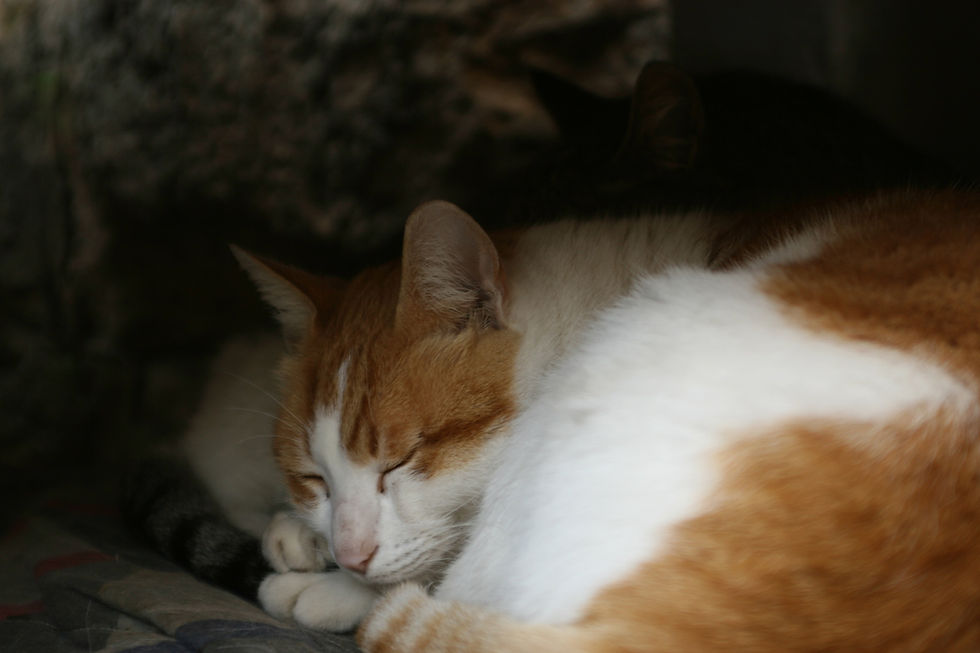When we make our Profession (take vows) in Community, the first question we are asked is ‘What is your desire?’ to which the answer is ‘I desire God’s help and to offer my life to him in this Community of All Hallows’. While I am sure this is true, I suspect for most of us it was not the whole truth; that our motives and our desires were more mixed. That is only human. How many of us would have seen those mixed motives at the moment of Profession is more questionable, and, in any case, the service was not the appropriate place to air them. A more honest answer might have been ‘I need God’s help, and desire to offer my life to him in this Community of All Hallows, where I also desire to find safety, love, escape, to be important …’ or whatever. I rest assured that whether I knew my mixed motives at the time, God certainly did, and accepted me anyway.
Exploring our mixed motives is the work of a lifetime, a work in which God is intimately involved, as we learn them and gradually let them go, or find them deepened into our longing for God, a work which goes hand in hand with a deepening acceptance of God’s love and total forgiveness for us. The latter I find as important as the former; not only forgiving us the more dubious of our motives, but also assuring us that we are forgiven, that we don’t have to earn that forgiveness and love, but that it is there ready and waiting to be poured out upon us. There is a sense in which the mixture of our motives becomes an important tool in the offering of our life to God - in our case in ‘this Community of All Hallows’, but this is also true in whatever context your commitment is lived out.
Learning to live in God’s forgiveness and love is a process that goes on, deepens and becomes wider, if we will and can let it. We all have actions for which we need forgiveness; yet sometimes that forgiveness can be there for feelings, for impressions we have received from others, yet which are not wholly (or even at all) our fault. Shame is good at dwelling deep down, forgotten, half-acknowledged, ignored; it can be responsible for a lot of mixed motivation, as we flee from it, and shape our lives around avoiding it and ensuring we don’t get shamed again. Giving it much more power than if we were to turn and confront it. I can still remember the day I walked into high school to find 2 girls younger than me pointing at me ‘that’s who said …’. It came back vividly the other day when I heard some music from that time. It felt like that rumour spread through the whole school. As far as I am aware, most people believed it – why wouldn’t they? I will declare to my dying day that I did not say what the rumour accused me of. Yet I still bear the shame of having said something silly, stupid, idiotic – although I did not say it. I have spent time trying to work out where the rumour came from – unsuccessfully. Yet, I did not say it, and I need not bear the shame of having said something stupid which I did not say.
Even if I had, it would have been out of ignorance, and wasn’t worth the shame that grew from it. Yet God’s forgiveness is there for me, to take away that shame and all the actions that sprung from it. That I am learning to accept that forgiveness is why I’ve mentioned it at all. Whether or not I have done something wrong which needed forgiving in this context is irrelevant – I need the assurance that I am forgiven, that God is taking away the shame. That he is forgiving all the avoiding, all the mixed desires, that it has brought to our relationship. Had I done something shame worthy, that forgiveness would still have been there for me. It is there for you, whatever it is that you carry. ‘Come to me all you that labour and are heavy burdened, and I will give you rest’ (Matthew 11:28). Lay your burdens at the foot of the cross, allow our Saviour to take them away, allow that full and free forgiveness to flood your being and bring you closer and ever closer to that deep deep Love, who longs to give you rest.

.png)
Comments